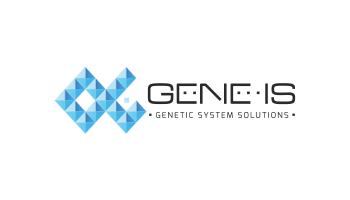What is Personal and Preventive Medicine?
With the advancements in genetic science today, it has become possible to provide individualized treatments that are not based on statistics. Health problems that may arise with age are analyzed through personal and preventive medicine. Your health plan is tailored to high-risk areas, and appropriate monitoring and treatment plans are developed.
Evaluations based on the differences in your own DNA are determined according to the results of understandable and treatable adverse reactions, and a suitable nutrition and exercise program can be created according to your unique genetic makeup.
Personalized DNA test is the analysis of the chemical database of our body functions, DNA. It is possible to learn about genetic alterations and mutations in your genes through genetic check-up.
Although personalized DNA test gives information about the diagnosis, treatment and prevention of diseases, consulting your doctor our genetic counselor is an important step of genetic check-up.
If you have symptoms of a genetic disease, family history or you want to learn about the medication and dosage suitable for you, you are pregnant, have a newborn or want to have a child, you can get genetic check-up.
Cardiovascular diseases, diabetes, high blood pressure, obesity, metabolic syndrome, peripheral metabolism, lactose malabsorption, lipid metabolism genes are analyzed in your personalized DNA report for a better and healthier life plan.
The Panel Includes
- Osteoporosis
- Inflammation and Longevity
- Macular Degeneration
- Brain Aging
- Emotional Stability
- Skin Quality
- Andrology and Prostate Cancer Panel
- Detoxification
-
Weight and Diabetes Panel
-
Cardiovascular and Hypertension Panel
-
Lipid Metabolism
-
Lactose Malabsorption
DNA Test Packages
- Whole Genome Sequencing For Detection Of Mental Retardation
- Genetic Check-Up
- Premium Panel
- Weight and Diabetes Panel
- Anti Aging Panel (Female)
- Anti Aging Panel (Male)
- Oncology Panel (Male)
- Cardiac Metabolic Panel
- Skin Quality Panel
- Cancer Risk
- Autizm
- Reproduction/In Vitro Fertilization Genetic Tests
- Tests for Blood Diseases
- Drug Sensitivity Analysis
- Microbiological Tests
- Male Infertility Tests
- Analysis of Chromosomal Anomalies
- Tests for Hereditary Diseases
Whole Genome Sequencing for Detection of Mental Retardation and Mental Disability
Mental retardation or mental disability is a lifelong hurdle and manifests itself with intelligence underneath the average, usually during infancy or early childhood.
It can be rated like mild mental retardation (50-70 IQ), moderate mental retardation (35-40 IQ), severe mental retardation (20-34 IQ) and very severe mental retardation (20 IQ low IQ).
Mental retardation occurs in less than 0.5% of newborns and is closely related to genetic causes. 15% are chromosomal anomalies, 10% are microdeletions and 10% are due to monogenetic alterations in males.
Whole Genome Sequencing is the most comprehensive genetic test with the ability to find virtually any genetic variation. The advantages of mutation detection of the whole genome sequence have been demonstrated in many studies. It has been observed that all Genome Sequencing analyzes detect 40% of autism and 60% of mental retardation in clinically relevant changes in pediatric populations.
Who should be tested?
Those with the following characteristics are well suited to perform an test:
- Mental Disability
- Dismorphic properties
- Birth defects
- Unexplained seizures
- Deficiency or delay in age-related development
- Hypotonia
- Abnormal growth
- Autism Spectrum Disorder
Personalized DNA test is the analysis of the chemical database of our body functions, DNA. It is possible to learn about genetic alterations and mutations in your genes through genetic check-up.
Although personalized DNA test gives information about the diagnosis, treatment, and prevention of diseases, consulting your doctor or genetic counselor is an important step of the genetic check-up.
If you have symptoms of a genetic disease, family history or you want to learn about the medication and dosage suitable for you, you are pregnant, have a newborn or want to have a child, you can get the genetic check-up.
Cardiovascular diseases, diabetes, high blood pressure, obesity, metabolic syndrome, peripheral metabolism, lactose malabsorption, lipid metabolism genes are analyzed in your personalized DNA report for a better and healthier life plan.
Personalized DNA test is the analysis of the chemical database of our body functions, DNA. It is possible to learn about genetic alterations and mutations in your genes through genetic check-up.
Although personalized DNA test gives information about the diagnosis, treatment, and prevention of diseases, consulting your doctor or genetic counselor is an important step of genetic check-up.
If you have symptoms of a genetic disease, family history, or you want to learn about the medication and dosage suitable for you, you are pregnant, have a newborn or want to have a child, you can get genetic check-up.
Cardiovascular diseases, diabetes, high blood pressure, obesity, metabolic syndrome, peripheral metabolism, lactose malabsorption, lipid metabolism genes are analyzed in your personalized DNA report for a better and healthier life plan.
The premium panel for females includes:
- Weight and Diabetes Panel
- Cardiovascular and Hypertension Panel
- Lipid Metabolism
- Lactose Malabsorption
- Osteoporosis
- Inflammation and Longevity
- Macular Degeneration
- Brain Aging
- Emotional Stability
- Skin Quality
- Gynecology and Breast Cancer Panel
- Detoxification
The World Health Organization has listed obesity as one of the top ten global health problems in Western cultures; some consider it the most dangerous disease in the world today.
Statistically, we now know that most Americans are technically considered overweight and that Western Europe and Japan are not far behind. Current estimates categorize 30% of US adults as obese; that is, at least 20% heavier than their ideal weight. This is nearly double the percentage of 20 years ago.
If we take in more calories than we burn, obesity can develop over time, and along with it come the associated medical problems of hypertension, type 2 diabetes mellitus, dyslipidemia (high triglycerides and low high-density lipoproteins) and atherosclerosis. This cluster of medical sequelae, collectively referred to as the metabolic syndrome or syndrome X, poses one of the most serious threats to public health that our society faces.
The Weight and Diabetes Panel includes:
- Weight and Diabetes
- Lipid Metabolism
- Cardiovascular and Hypertension Panel
- Lactose Malabsorption
- Osteoporosis
- Inflammation and Longevity
- Emotional Stability
- Detoxification
Just like your hair color or height, your aging also depends on your genes. However, it is difficult to identify the genes involved in aging since there are many variables to it. There are genes that protect you from its effects, genes that prevent the side effects of aging, or fight them. Although aging is different for each individual, over time it affects everybody.
It is also evident that the DNA and protein damage due to age is not irreversible until unless there is a stress response. Thus, the stress response is thought to be the reason for age-related weakness.
The genetic makeup of individuals plays an important role during systemic inflammation that initiates age-related diseases like Alzheimer’s or osteoporosis. Genetic variations located in the promoter regions of proinflammatory cytokines increase gene transcription. Therefore, the increased cytokine production plays a role in the susceptibility to age-related diseases. Whereas genetic variations concerning anti-inflammatory cytokines play a role in successful aging.
The Anti-Aging Panel for females includes:
- Weight and Diabetes Panel
- Lipid Metabolism
- Lactose Malabsorption
- Osteoporosis
- Macular Degeneration
- Skin Quality
- Gynecology and Breast Cancer Panel
- Inflammation and Longevity
- Drug Metabolism
- Detoxification
- Brain Aging
- Emotional Stability
Just like your hair color or height, your aging also depends on your genes. However, it is difficult to identify the genes involved in aging since there are many variables to it. There are genes that protect you from its effects, genes that prevent the side effects of aging, or fight them. Although aging is different for each individual, over time it affects everybody.
It is also evident that the DNA and protein damage due to age is not irreversible until unless there is a stress response. Thus, the stress response is thought to be the reason for age-related weakness.
The genetic makeup of individuals plays an important role in systemic inflammation that initiates age-related diseases like Alzheimer’s or osteoporosis. Genetic variations located in the promoter regions of proinflammatory cytokines increase gene transcription. Therefore, the increased cytokine production plays a role in the susceptibility to age-related diseases. Whereas genetic variations concerning anti-inflammatory cytokines play a role in successful aging.
The Anti-Aging Panel for males includes:
- Weight and Diabetes Panel
- Lipid Metabolism
- Lactose Malabsorption
- Osteoporosis
- Macular Degeneration
- Skin Quality
- Andrology and Prostate Cancer Panel
- Inflammation and Longevity
- Drug Metabolism
- Detoxification
- Brain Aging
- Emotional Stability
Cancer is a genetic disorder results from the genetic alterations of the genes that control cell growth. There are around 23.000 genes in a human genome. The alterations called single nucleotide polymorphisms in human DNA causes the genetic differences. Some alterations may cause disorders like cancer.
Early diagnosis and prevention may be possible through genetic oncology by informing the patient about the disease and how to live a better and healthier life.
The Oncology Panel for males include:
- Andrology and Prostate Cancer Panel
- Detoxification
- Inflammation and Longevity
- Drug Metabolism
Personalized DNA test is the analysis of the chemical database of our body functions, DNA. It is possible to learn about genetic alterations and mutations in your genes through genetic check-up.
Although personalized DNA test gives information about the diagnosis, treatment, and prevention of diseases, consulting your doctor or genetic counselor is an important step of the genetic check-up.
If you have symptoms of a genetic disease, family history, or you want to learn about the medication and dosage suitable for you, if you are pregnant, have a newborn, or want to have a child, you can get the genetic check-up.
Cardiovascular diseases, diabetes, high blood pressure, obesity, metabolic syndrome, peripheral metabolism, lactose malabsorption, lipid metabolism genes are analyzed in your personalized DNA report for a better and healthier life plan.
The Cardiac Metabolic Panel includes:
- Weight and Diabetes Panel
- Cardiovascular and Hypertension Panel
- Lipid Metabolism
- Lactose Malabsorption
- Osteoporosis
The quality of the skin is the most visible feature of an individual. The hydration, elasticity and antioxidant capacity of skin are key factors in the process of skin aging. The aging of skin depends on heritable factors as well as environmental factors. Recent studies on twins have shown that skin aging has a 60% dependence on genetic factors and a 40% on non-genetic.
The skin quality panel includes genes that have a role in the hydration of the skin epidermis, the lipid metabolism, elasticity, antioxidant capacity, wound healing, tumorigenesis and vitiligo.
Kanser Riski
- Chronic Lymphocytic Leukemia (CLL) Panel
- Breast Cancer (BRCA1, BRCA2)
- BRAF Gene (exon 11, 15) Scan
- Multiple Myeloma Panel
- Non-Hodgkin Lymphoma Panel
- AML1/ETO Fusion Transcript Analysis
- BCR/ABL Fusion Transcript Analysis
- CBFB-MYH11 inv (16) Fusion Transcript Analysis
- PML/RAR Fusion Transcript Analysis
- EGFR Gene Scan (exon 18, 19, 20, 21)
- JAK2 Gene Scan (exon 12, 14 & V617F mutation)
Autism
Autism may stem from environmental factors or multi-genetic factors. There were no genetic tests available to diagnose autism spectrum disorders until recently. Chromosomal Microarray test and Fragile X Syndrome tests associated with Autism Spectrum Disorder are available to manage autism.
Reproduction/In Vitro Fertilization Genetic Tests
- Preimplantation Genetic Diagnosis
- Single Gene Diseases
- Chromosome Aneuploidy/Translocation
- Maternal DNA Contamination
Tests for Blood Diseases
- Myelodysplastic Syndrome (MDS) Panel
- Hemochromatosis
- Thrombosis Panel (Factor Leiden V, Factor II, MTHFR Polymorphisms)
- Sickle Cell Anemia
- Factor V R2 and Factor XIII Polymorphism Tests
- TPMT Genotyping (1, 2, 3A, 3C alleles)
Drug Sensitivity Analysis
- CYP1A2 gene analysis (1A, 1F alleles)
- CYP2C19 gene analysis (2, 3, 4 alleles)
- CYP2C9 gene analysis (2, 3, 4, 5 alleles)
- CYP3A5 gene analysis (3 allele)
- UGT1A1 gene analysis (28 allele)
- VKORC1 gene analysis (-1639, 1173, 3730 bases)
Microbiological Tests
- Tuberculosis test
- CMV test
- HPV test
- HBV tests
- HCV tests
Male Infertility Tests
- Cystic Fibrosis (CFTR gene analysis)
- Y Chromosome DAZ (Yq) Microdeletions
Analysis of Chromosomal Anomalies
- Aneuploidy (Chromosome X, Y, 13, 18, 21)
- Down Syndrome
- Patau Syndrome
- Edwards Syndrome
- Triple X Syndrome
- Klinefelter Syndrome
- XYY Syndrome
- Fragile X Syndrome
- DiGeorge Syndrome
- Cri du Chat Syndrome
- Kallman Syndrome
- Williams Syndrome
- Wolf-Hirschhorn Syndrome
- Chimerism
- IgH/CCND1 FISH Analysis
- IGH/MAF FISH Analysis
- IgH/BCL2 FISH Analysis
- PML/RAR FISH Analysis
- IGH/FGFR3 FISH Analysis
- IGF/MYC FISH Analysis
- AML1/ETO FISH Analysis
- BCR/ABL FISH Analysis
- RB1 FISH Analysis
- p53 FISH Analysis
- MALT1 FISH Analysis
- del7q31 FISH Analysis
- c-MYC FISH Analysis
- MLL FISH Analysis
- ATM FISH Analysis
- D13S25 FISH Analysis
- D13S319 FISH Analysis
- RB1 FISH Analysis
- LAMP1 FISH Analysis
- 20q12 FISH Analysis
- EGR1 FISH Analysis
- CSF1R FISH Analysis
- MDS FISH Analysis
- 17q11-12 FISH Analysis
- 14q32 FISH Analysis
- inv(16) p13/q22 FISH Analysis
Tests for Hereditary Diseases
- Anemia Mediterranea
- Achondroplasia / Hypochondroplasia
- Angiotensin
- Ataxia Telangiectasia (Analysis of ATM Gene Connection)
- Charcot-Marie-Tooth (PMP22 duplication, Scanning of Mutations in MPZ, PMP22, GJB1 genes)
- Duchene-Becker Muscle Dystrophy
- Friedrich Ataxia
- Huntington Disease
- HNPP (PMP22 Deletion)
- Cystic Fibrosis
- Congenital Adrenal Hyperplasia
- K-RAS
- Myotonic Dystrophy
- Neurofibromatosis
- Spinal Muscular Dystrophy
- Spinocerebral Ataxia
- Thalassemia α
- Thalassemia β
- Prader Willi/Angelman Syndrome
- ApoE genotyping (E2, E3, E4 alleles)





